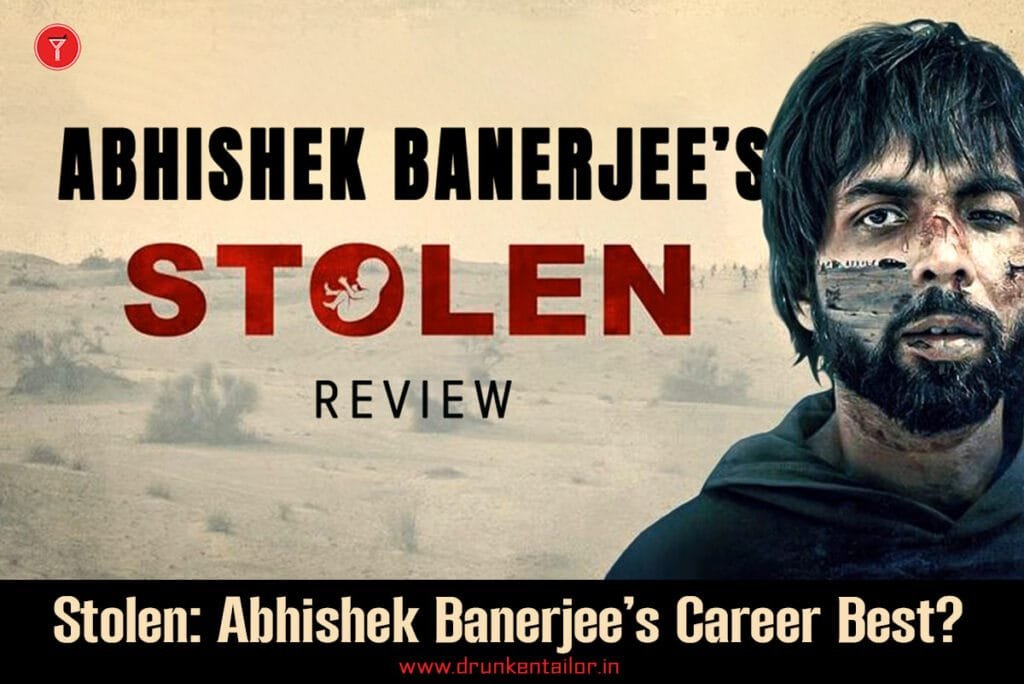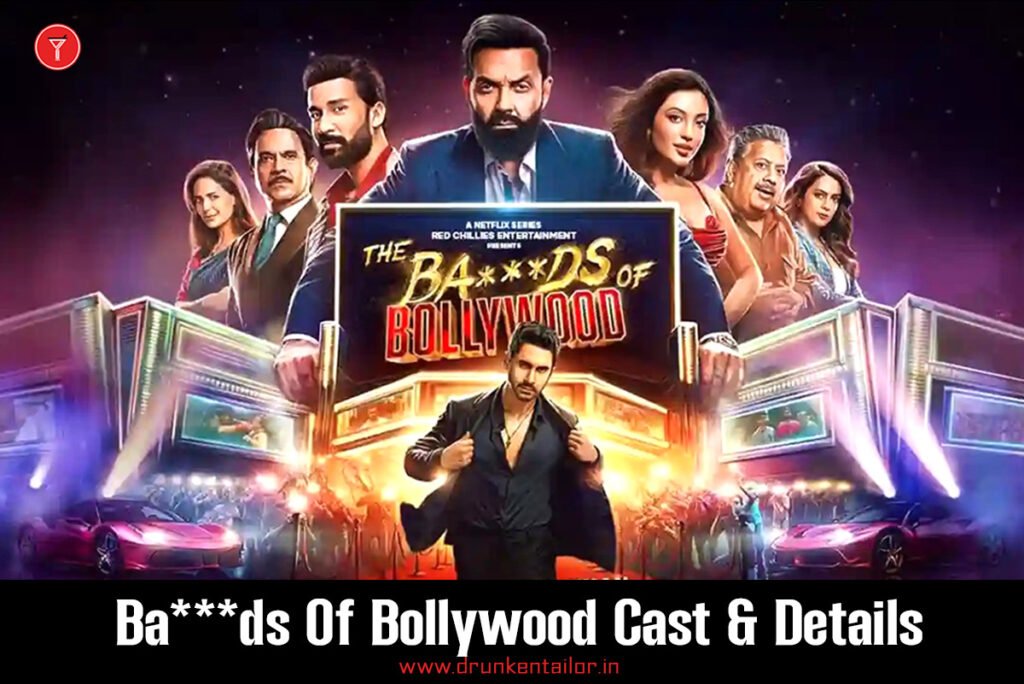Karan Tejpal’s directorial debut Stolen throws you into the deep end of India’s harsh realities faster than you can say “WhatsApp forward.” This isn’t your typical Bollywood masala entertainer – it’s a raw, unflinching look at mob hysteria that’ll make you clutch your phone a little tighter the next time you see those “child kidnapper alert” messages flooding your family group chats. With Abhishek Banerjee delivering what might just be his career-defining performance, this Amazon Prime thriller manages to be both deeply disturbing and oddly compelling.
Rating: 3.5/5
When Night Terrors Become Reality: The Plot Unfolds
Stolen wastes no time in setting up its nightmare scenario. Picture this: you’re at a railway station in the dead of night, minding your own business, when suddenly you’re thrust into every parent’s worst fear. A baby named Champa disappears from her mother’s arms, and before you can process what’s happening, innocent bystander Raman (Shubham Vardhan) becomes the prime suspect simply for picking up a woollen cap.
Enter Gautam, played brilliantly by Abhishek Banerjee, who arrives to pick up his younger brother for a family wedding and instead finds himself in a situation that would make even seasoned crisis managers break into cold sweats.
What follows is a tightly wound, real-time thriller that spans one harrowing night – think of it as “24” meets “Article 15,” but with more existential dread and fewer commercial breaks.
The film draws its inspiration from the horrific 2018 Karbi Anglong lynching incident in Assam, where two innocent men were brutally killed by a mob who falsely believed they were child traffickers.
Director Tejpal doesn’t shy away from this dark source material; instead, he crafts a narrative that forces viewers to confront uncomfortable truths about our society’s fault lines.

Abhishek Banerjee: From Comedy to Career-Defining Drama
If you’ve only seen Abhishek Banerjee in his comedic roles, prepare to have your mind completely blown. The actor, known for his scene-stealing performances in lighter fare, completely transforms himself in Stolen.
Gone is the familiar comic persona; in its place stands a man grappling with fear, moral confusion, and the gradual awakening of his conscience.
Banerjee’s Gautam starts as the archetypal privileged urbanite – cynical, classist, and desperately wanting to extract himself from this messy situation
He’s the kind of character who’d rather throw money at a problem than actually engage with it. But as the night progresses and the stakes escalate, we watch him evolve into something more complex and, dare I say, human.
The transformation is subtle yet powerful. Abhishek Banerjee doesn’t rely on dramatic outbursts or over-the-top emotional moments. Instead, he lets the character’s growth simmer beneath the surface, allowing viewers to witness Gautam’s gradual realization that privilege can only protect you so far.
By the film’s climax, when he finally rises to the occasion, it feels genuinely earned rather than contrived.
The Supporting Cast: More Than Just Background Players
While Abhishek Banerjee might be the film’s emotional anchor, the supporting cast deserves significant credit for creating this oppressive atmosphere. Shubham Vardhan as Raman embodies the well-meaning but naive idealist – the kind of person whose good intentions often pave the road to hell.
His chemistry with Banerjee feels authentic, even if their sibling dynamic could have been explored further.
But it’s Mia Maelzer as Jhumpa who truly steals scenes whenever she appears on screen. Her portrayal of the grieving mother is so convincing that you’re never quite sure what lies beneath her hysteria.
Is she the victim she appears to be, or is there something more sinister at play? Maelzer keeps us guessing throughout, adding layers of complexity to what could have been a one-dimensional role.

The police officers, particularly Harish Khanna’s Panditji, represent institutional apathy at its finest – they’re not cartoonish villains, but they’re hardly inspirations of trust either.
They embody that familiar bureaucratic indifference that anyone who’s dealt with Indian officialdom will recognize instantly.
Technical Brilliance: When Style Serves Story
Stolen employs handheld cameras and long takes to create an almost documentary-like feel. Cinematographer Isshaan Ghosh deserves praise for creating visuals that feel immediate and urgent.
The camera work never feels showy; instead, it serves the story by putting viewers right in the middle of the chaos.
The film’s 93-minute runtime works in its favor – there’s no fat to trim here. Every scene serves a purpose, building tension methodically until the explosive third act where our protagonists find themselves literally running for their lives in a dusty village, surrounded by an angry mob wielding lathis.
Social Commentary: Two Indias Colliding
What makes Stolen particularly relevant is how it explores the collision between India’s two realities. On one side, you have the privileged urban elite represented by the Bansal brothers, complete with their SUV and well-tailored clothes. On the other, there’s rural India with its own set of rules, prejudices, and justice systems.
The film doesn’t lecture about these disparities; instead, it shows them in action. When Gautam’s wealth and urban sophistication become meaningless in the face of mob fury, the power dynamics shift dramatically.
Suddenly, the privileged urbanite is as vulnerable as anyone else, stripped of his shields and forced to confront realities he’d previously ignored.
Minor Shortcomings: Room for Improvement
While Stolen succeeds in most areas, it’s not without flaws. Some chase sequences feel slightly padded, adding to runtime without necessarily advancing the plot.
The film occasionally struggles with pacing in its middle act, and certain characters could have been fleshed out more fully.
The climax, while emotionally satisfying, resolves things perhaps a bit too neatly for such a complex situation. Real-life mob situations rarely have clear-cut conclusions, and the film’s ending, while dramatically effective, might feel overly tidy to some viewers.

Final Verdict: A Must-Watch Social Thriller
Stolen succeeds because it refuses to provide easy answers to difficult questions. It’s the kind of film that’ll stick with you long after the credits roll, making you question your own assumptions about justice, privilege, and moral responsibility.
Abhishek Banerjee delivers a performance that should be studied in acting classes – it’s restrained, powerful, and completely authentic. The film serves as proof that Indian cinema can tackle serious social issues without sacrificing entertainment value.
For a debut feature, Karan Tejpal has created something genuinely impactful. Stolen isn’t just a thriller; it’s a mirror held up to our society, reflecting uncomfortable truths about class, caste, and the thin line between civilization and chaos.
If you’re looking for mindless entertainment, look elsewhere. But if you want a film that challenges, disturbs, and ultimately enriches your understanding of contemporary India, Stolen on Amazon Prime Video deserves your attention. Just don’t expect to sleep peacefully afterward – this is the kind of social thriller that haunts you with its plausibility.


